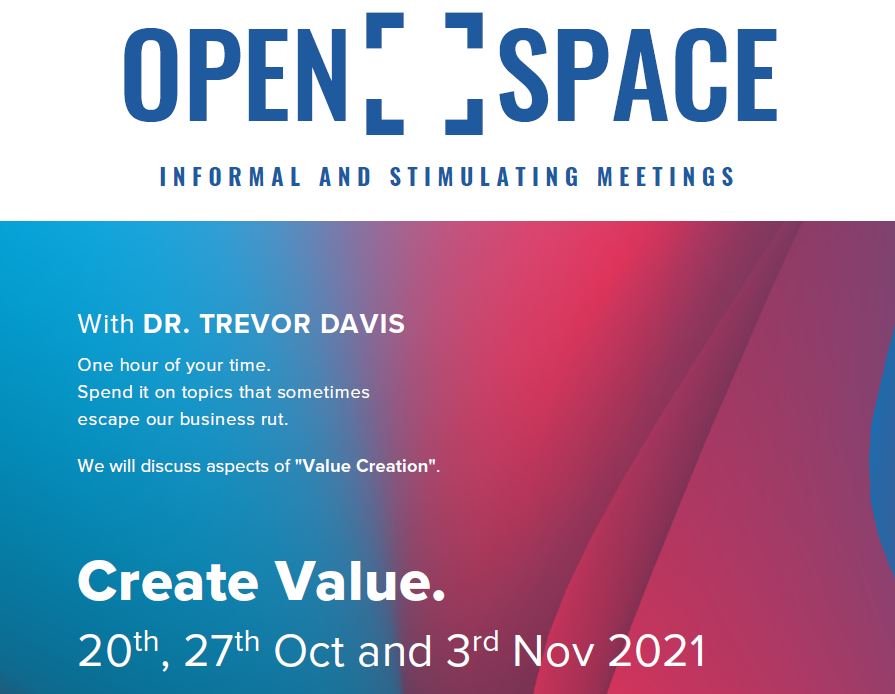It isn’t sufficient to talk about Value Creation: value has to be sustained. The International Federation of Accountants talks about a cycle of definition, creation, delivery, and sustainability. This idea of a dynamic Value Creation life-cycle based on changing stakeholders’ perspectives on the meaning of value is a break with the static, free market view of the 1970s.
This constant re-definition of value opens up the possibility that Consumer Goods companies can always find new sources of value from a fresh generation of consumers, creative assortments, product and channel innovation, and environmental and socially responsible value chains.
Some in our industry understood this at a deeper level some time ago. In Business Week in August 1979, Quaker Oats President Kenneth Mason, said “making a profit is no more the purpose of a corporation than getting enough to eat is the purpose of life. Getting enough to eat is a requirement of life; life’s purpose, one would hope, is somewhat broader and more challenging. Likewise with business and profit.”
In other words, profit without purpose is unlikely to be a sustainable route to Value Creation in the long term, and that purpose has to resonate with consumers, stakeholders, and investors. The stories we tell about our companies and brands are as much a value driver as, say, driving down distribution costs or improving returns on capital.
Our industry is global, complex, and interconnected from individual consumers and smallholder farmers to the largest corporates. So it isn’t surprising that the Consumer Goods industry is also a key actor in new, multi-stakeholder approaches to economics and Value Creation. For example, the Economics of Mutuality has its origins in Mars, Incorporated.
Why do we need these new ways of looking at economics and Value Creation?
Volume growth without limit on a planet of finite resources is losing its appeal to consumers. The rapidly growing spending power of Millennials and Generation Z epitomises this as environmental and social anxieties increasingly influence their spend. This is a trend that smaller brands and B Corporations have been swift to act on.
In major markets such as Europe, there is a slow stagnation of the profit pool growth in key categories, and tactics such as ramping up promotions are unlikely to deliver more than baseline growth. What profit pool growth there is, is not shared equally: the industry needs a new growth narrative. For example, one that exploits network effects in the end-to-end value chain through more extensive digitisation of products and services.
Investors are supporting those that pursue growth models that address social and environmental concerns. Yes, this has been slow to start, but there is now momentum. A new breed of purposeful investors believe that financial performance in the future will flow as much from investments in human capital, social capital and environmental capital as from financial capital. Why do they believe this? They believe in human creativity harnessed to purpose.
Consumer Goods is not an industry in trouble. The COVID-19 pandemic has revealed how important the industry is to consumers. The pandemic also brought out deep strengths and innovation. But there are signs that suggest the time is right to move step by step to a new growth paradigm as a way to sustain Value Creation.
How should one start? If one of the surest long-term measures of Value Creation is profitable revenue growth in excess of the capital invested, then start with the resilience and sustainability of those revenue streams. Looking through the lens of a new economic model, where are the major opportunities for value growth, and what are the economic, societal and environmental impacts associated with them? What are the trade-offs? What needs to be set aside?
At a more basic level, perhaps it is also time to ask a basic question: given the level of societal change and environmental concern, do we really understand how each of our stakeholder groups defines value? If not, then we had better find out!
And, to learn more about how issues impacting the CGF members and the Consumer Goods industry at large, take a look at the Global Summit 2021.
Find out more:
Join the Open [ ] Space meetings with Dr. Trevor Davis on the 27th October and 3rd November 2021.

